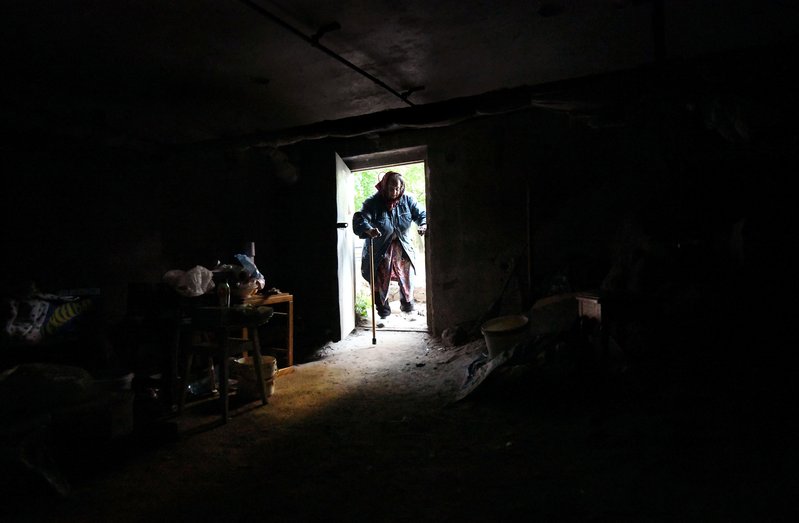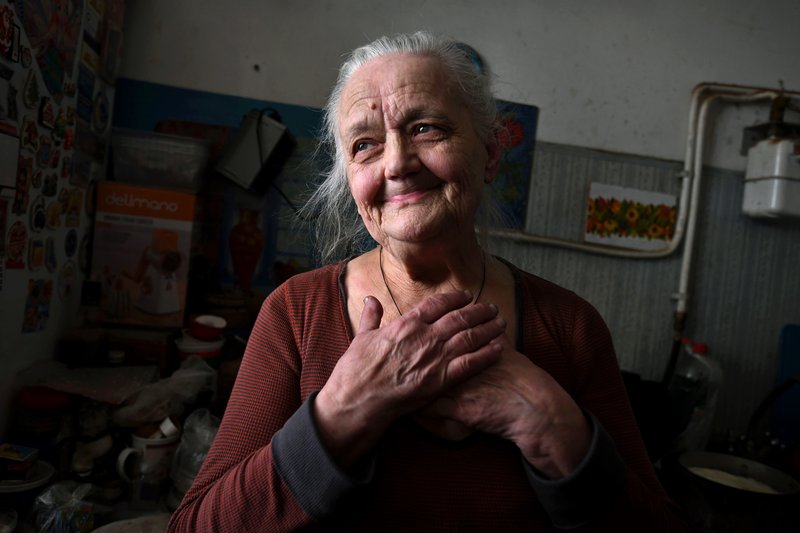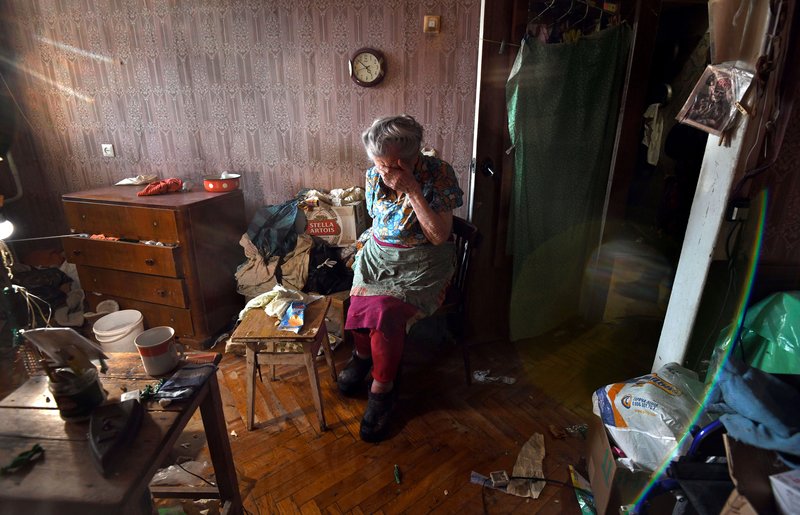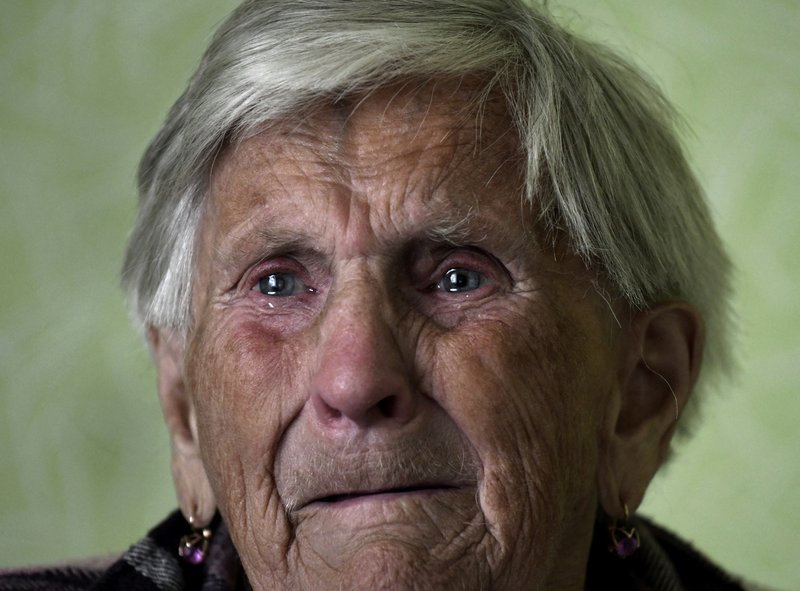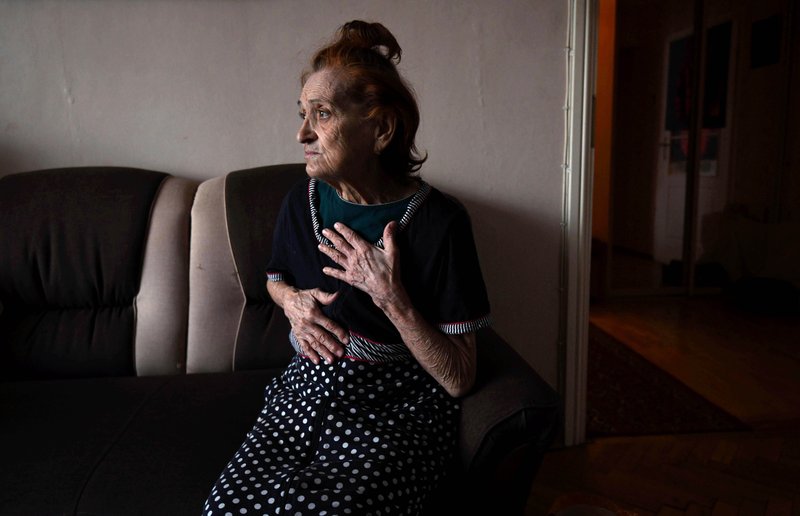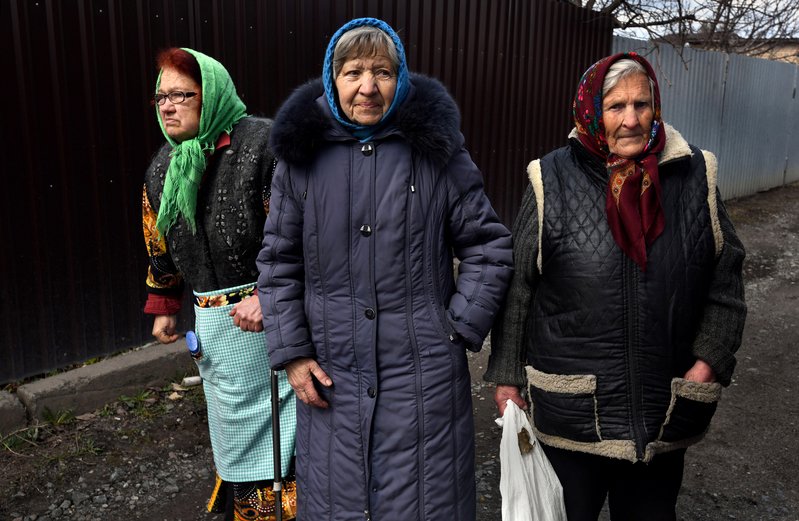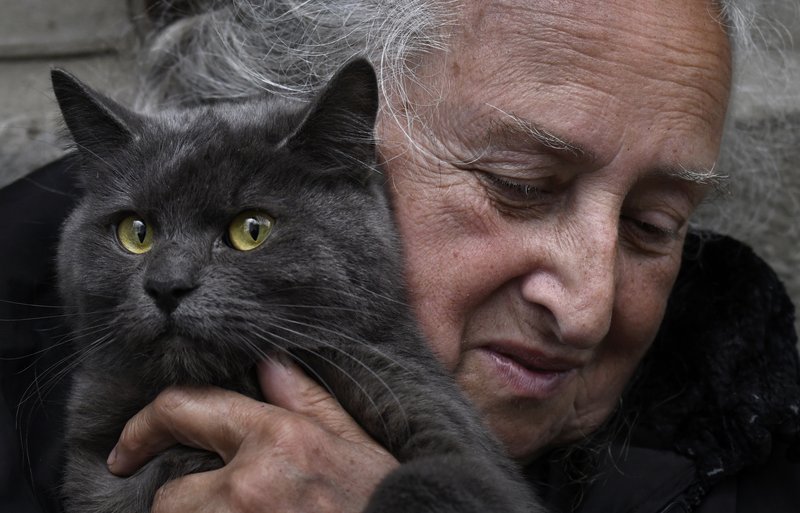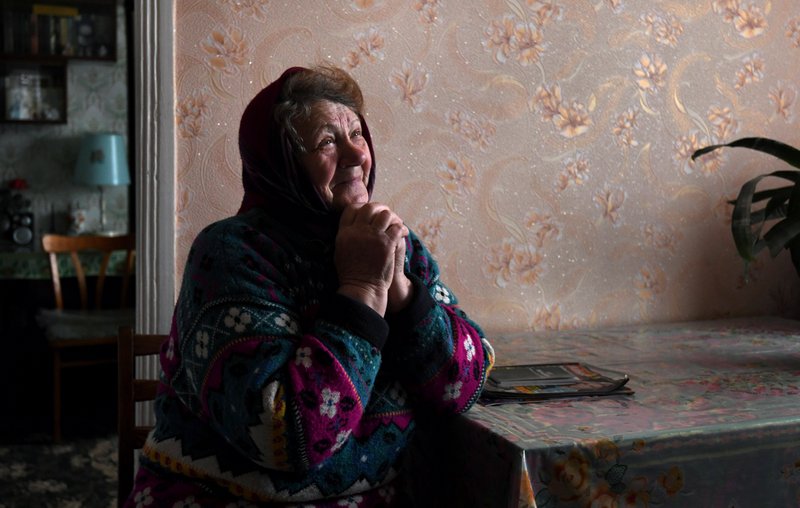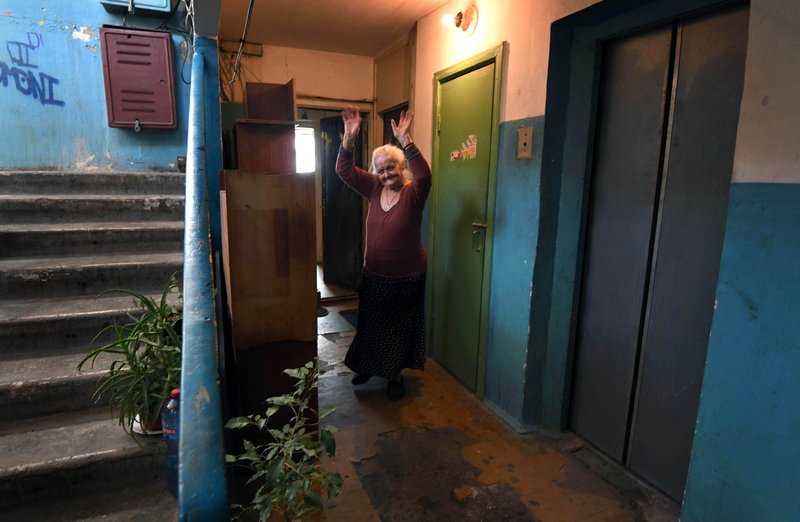Runner-Up: Ladies that Stayed
A series of photographs that reflects a strong sense of identity or narrative. Respect for the dignity of the person is important.
‘It’s very scary, but I won’t leave my land,’ defiantly states Liudmyla Kirichenko, 75 years old, who has lived in a basement bunker at her apartment building since the beginning of the Russian invasion in the heavily shelled neighborhood of Saltivka in Kharkiv, Ukraine on May 17, 2022. They are charming, strong-willed elderly babushkas. In the face of adversity, they are ladies that stayed. They are vulnerable targets of random shelling. But they can’t - or simply won’t - leave. The bunker is dark, damp and cold, lit only by candles or flashlights. There is no water or electricity. But she always has a bucket filled with exquisite flowers adorning the entrance of her hovel. She is scared and never goes farther than 20 meters from the basement. They use pigeons as a barometer – when they fly away it is incoming and time to go underground. Though not far enough to be a real bomb shelter, it at least provides some degree of psychological safety. Her little corner of compassion has become a way-station for humanitarian aid. She has trouble sleeping and prays during the long darkness. Sweet dreams do not come easy as shelling rages. ‘What would I say to Putin? Just saying his name and my body turned into stone. No word in any language has been created to describe him. He’s a creature. He’s a nuclear bomb,’ she rages. ‘There are only two nationalities – human and nonhuman.’
Ladies that Stayed
They are beautiful, strong, delightful elderly babushkas, an affectionate term for grandmother. In the face of profound adversity, they are ladies that stayed. Seniors should be enjoying their twilight years, not worried about the next airstrike nearby. But they can’t - or won’t - leave. They are potential targets. Random shelling feels more like terrorism for the vulnerable. They deal with not only the brutal existence of a war zone, but daily struggles of aging with few available services. The babushkas are in a realm of their own. Their spirits sparkle. They all compare Russia’s invasion to WWII and wistfully show old photos of when they were young, then mention the rocket that landed in their neighborhood. They whisper bittersweet blessings as they return to their bunkers, awaiting another night of bombardment. Sweet dreams don’t come easy as war rages. Babushkas in Bucha hid in a basement together during the Russian occupation. After liberation, the women found bodies littering their town and navigated rubble-strewn streets to receive humanitarian aid. They are grateful for volunteers that risk all to help. They still gather nightly at the one home with heat to make blueberry tea and reminisce. Destiny here is as unpredictable as the bombs that rain from the sky. The suffering in Ukraine is epic, but the world has also seen an enduring spirit and mortal courage of a people challenged to survive. The ladies are a symbol of our shared humanity. Grace in a babushka. They are the grandmother we never knew, the beloved mother we lost. They are light in this darkness. In a world at war on so many levels, they are hope. When 89-year-old Nadia shyly performs a moving folk ballad called Mother's Braid - it sounds like a whisper of peace…



